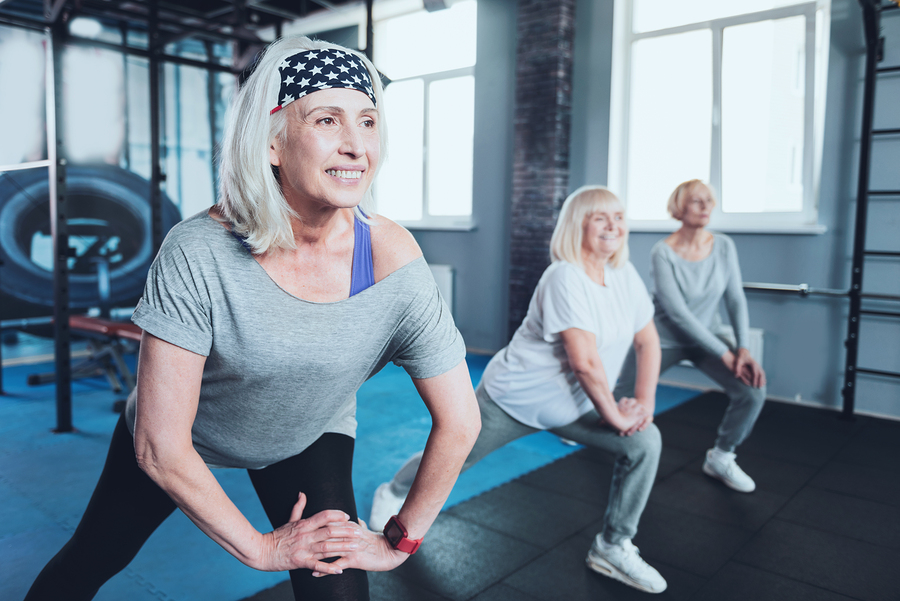Live well to live longer
Tips on how to slow down the ageing process and live healthier for longer
Statistics tell us that in the UK we are living longer thanks to improved medical science, better living conditions and lifestyle choices. But what happens in these extra years? Do we just accept our bodies will decline both physically and mentally or is it possible to slow down the ageing process by delaying the onset of those age-related conditions such as heart disease, stroke, Parkinson’s disease or even Alzheimer’s?
AXA PPP healthcare’s Deputy Chief Medical Officer, Dr Arup Paul tells us how we can help ourselves to live well to live longer
“How we behave today impacts enormously on how our bodies are in the future. We may not be able to stop the ageing process but it is possible to reduce the onset of problems caused by age-related conditions. By making the right lifestyle choices and keeping our brains and bodies active we can certainly help ourselves to live more healthily for longer.”
When and how to start?
“You can be any age to make changes and the sooner the better, so the time to think about it is now,” says Dr Paul. “However, it is not easy to make lifestyle changes and the key is to start with little steps. Only change one thing at a time. Perhaps you could reduce the amount of sugar in your tea, cut out your afternoon biscuit or go for a ten minute walk around the park. It’s important to sustain the change by making it regular and when you can do it without noticing then make another change or build on your first one.”
Here are our tips on how to slow down the ageing process and live healthier for longer.
Give up smoking
It is common knowledge that smoking can increase your risk of dying early from heart disease, stroke and cancer but did you know that smoking can contribute to loss of vision too? Age related macular degeneration (AMD) is the most common reason for loss of vision in the over 50’s and it is 4 times more likely to develop in smokers than in someone who has never smoked.
Further benefits of cutting out smoking include:
- an improved immune system
- increased energy
- better skin
- less stress
- slowing of facial ageing
- a delay in the appearance of wrinkles
However, if you feel that to stop smoking altogether is too big a step then try cutting down the amount you smoke per day and then give yourself a goal by setting a date when you would like to stop completely. Your GP will be able to help and remember that it’s never too late to stop.
NHS Smokefree – support to help you quit smoking.
Eat a balanced diet
A balanced diet full of nutrients will protect us from developing heart disease, type 2 diabetes and some cancers and is the best way of keeping our good health as we age.
A nutrient-rich diet does not have to be expensive. All fruit and veg count whether it be fresh, frozen, dried or tinned and the important thing is to remember that it should be balanced so it doesn’t mean you can’t have the occasional treat!
Click here to read about 8 healthy eating rules from a nutritionist.
Which foods are best?
Fruit, vegetables, wholegrains, seeds and nuts. Oily fish should be eaten once a week.
To protect against osteoporosis then foods such as low-fat dairy products, almond and rice milks, calcium-fortified soya, tofu, and fish with edible bones (such as tinned salmon) are good to eat.
Which foods are not so good?
Foods that will raise your cholesterol such as refined sugars, saturated fats and salt. These can be found in convenience foods such as ready-meals, pasties, pies and red and processed meats. The NHS suggest that the average adult should aim to eat no more than 70g of red or processed meat a day.
Consume fewer calories
The British Nutrition Foundation tell us that as we age we need fewer calories. Our metabolic rates slows as our muscle mass declines and so our bodies no longer need as much energy from food.
A study carried out last year found that cutting calories by 15% for 2 years led to decreased systemic oxidative stress which has been linked to many age-related conditions along with diabetes and cancer.
Exercise is good for us
Being physically fit, as well as helping our bodies to function more smoothly, will make us feel good too. Exercise can help to reduce stress and depression and there is research suggesting it can delay the onset of Alzheimer’s – find out more here.
When we exercise we must think about our cardiovascular fitness along with our muscle strength too.
Improve our cardiovascular fitness
Unfortunately with ageing if we do not exercise regularly then our cardiovascular fitness will decline. As even a short walk to the shops becomes more difficult we will become slower and less inclined to walk as far.
Dr Paul recommends that we do some form of activity every day – the current guidelines are 150 minutes of moderate exercise a week but anything is better than nothing! Moderate exercise could include walking, swimming, cycling, dancing for 30 minutes a time, 5 days a week.
For more information take a look at our fitness and exercise centre.
Improve our muscle strength
As we age, we need good functional fitness just to perform everyday activities such as carrying shopping, putting out the washing, emptying the bins, gardening and so on. If we lose our muscle strength then our functional fitness decreases and we start to rely on our joints rather than our muscles to help us move. Our joints then become over stressed and problems will result.
Dr Paul advises us to try and mix cardiovascular training with strength training. There are ways of exercising at home to improve our muscle strength. Click here for more information and exercise tips for older adults.
Don’t forget our brains
The key to having better brain function as we age and to reducing the risk of dementia is to ensure we are making new connections between brain cells. We can do this by having new experiences and stimulating the brain.
Learning a new skill, hobby or language, doing crosswords, Sudoku, reading or painting can all help to keep our brain functioning well. Click here on ways to reduce your risk of dementia.
Disclaimer
All content on Silversurfers.com is provided for general information only, and should not be treated at all as a substitute for the medical advice of your own doctor or any other health care professional. Silversurfers will not be responsible or liable for any diagnosis made by a user based on the content on www.silversurfers.com and we are also not liable for the content of any external websites or links from or to Silversurfers to any other websites. Please always consult your own doctor if you’re in any way concerned about any aspect of your health
Melina - Assistant Editor
Latest posts by Melina - Assistant Editor (see all)
- Top tips for hay fever sufferers - April 14, 2024
- Paysan Breton Cream Cheese Breakfast Wraps - April 12, 2024
- 4 Homemade Sweet Treats for Easter - March 24, 2024
- Playground Memories - March 10, 2024
- The invasion of the duvet: the ’10-second bed’ - February 20, 2024






















